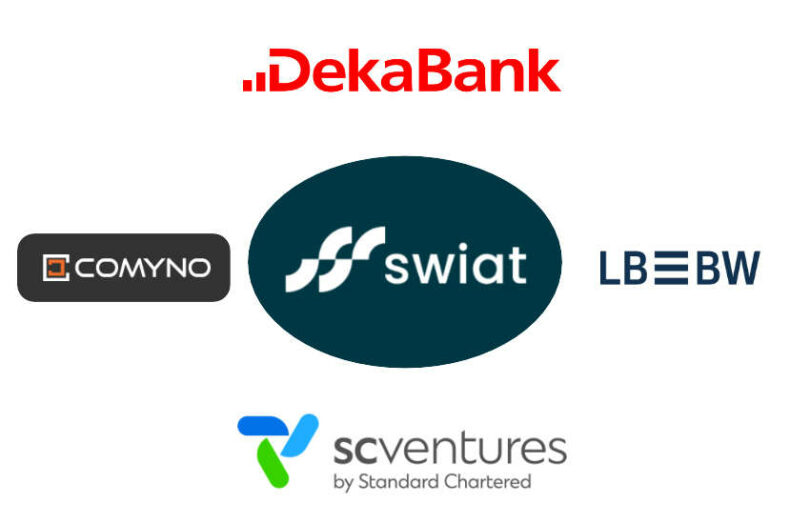Today SWIAT, the blockchain tokenization network founded by Germany’s DekaBank, announced three new investors, SC Ventures (Standard Chartered), one of Germany’s largest banks LBBW, and software firm Comyno. The participation of Standard Chartered and LBBW is not a surprise, as DekaBank mentioned their interest when the SWIAT platform was unveiled more than a year ago.
When SWIAT first launched, it described itself as the SWIFT for digital assets, with regulated institutions as the target. The name stands for Secure Worldwide Interbank Asset Transfer. It wants to encourage co-opetition and collaboration amongst participants in the financial industry. The vision is for regulated entities to build their own use cases but maintain interoperability with others on the SWIAT network.
“SWIAT is a solution for the financial sector being built at institutional grade by banks, for banks,” said Alex Manson, Head of SC Ventures. “It not only provides a platform to save costs and achieve economies of scale but enables better risk management and audit trails through the use of the latest generation of technology. As one of the lead investors, SC Ventures is convinced that the current use case is the precursor for many others, with the bulk of the settlement industry moving gradually to blockchain protocols.”
SWIAT’s first applications were securities lending and a green bond registry. At the end of last year, SWIAT unveiled Cycros, a proposed trigger payment solution to enable conventional central bank money to be used for the delivery versus payment (DvP) settlement of tokenized securities. This is well timed with the EU’s DLT Pilot Regime coming into force in March of this year.
There are now several initiatives exploring similar objectives to SWIAT. The Regulated Liability Network (RLN) is starting with a focus on digital currency but plans to expand to other digital assets. Likewise, Singapore’s Partior, where Standard Chartered is also a backer alongside JP Morgan and DBS Bank, is focused on interbank payments first but describes itself as a ‘value exchange’ platform.
SWIFT itself is looking to enable both digital currency interoperability as well as tokenized asset interoperability. It has multiple initiatives, including an institutional one with Clearstream, Northern Trust and SETL and another exploring public blockchain interoperability.
The reality is there will be multiple initiatives and many of the institutions will join more than one. So SWIFT has its own projects but is also involved in the RLN, and Standard Chartered is involved in SWIAT and Partior.
SWIAT’s solution’s blockchain is based on enterprise Ethereum.






